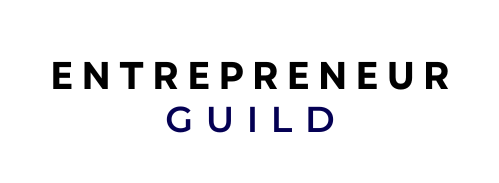E-commerce SaaS Company Unicommerce Eyes Public Listing In 2024 The landscape of e-commerce has witnessed a transformative journey in recent years, with the rise of digital platforms and technological innovations. One company that has played a pivotal role in facilitating the growth of e-commerce businesses is Unicommerce, a Software as a Service (SaaS) provider catering specifically to the e-commerce industry. As of 2023, Unicommerce has set its sights on a significant milestone – a public listing in 2024. This article delves into the journey of Unicommerce, its impact on the e-commerce sector, and the implications and expectations surrounding its potential IPO.
Unicommerce: Pioneering E-commerce Enablement
Founded in [Year], Unicommerce emerged as a solution to the burgeoning challenges faced by e-commerce businesses. The company recognized the need for a comprehensive and integrated platform that could streamline operations, manage inventory, and enhance overall efficiency for online retailers. Unicommerce positioned itself as a game-changer, providing a Software as a Service (SaaS) solution that empowers e-commerce companies with tools to manage their end-to-end operations seamlessly.
The Growth Trajectory:
Unicommerce’s growth trajectory has been nothing short of impressive. From its early days as a startup, the company quickly gained traction in the market by addressing the pain points of e-commerce businesses. Its platform, designed to handle inventory management, order fulfillment, and warehouse operations, resonated with online retailers looking to scale their operations efficiently.
The company’s commitment to innovation played a crucial role in its success. Unicommerce continuously adapted its platform to incorporate emerging technologies such as artificial intelligence and machine learning, providing its clients with cutting-edge solutions to stay competitive in the dynamic e-commerce landscape.
Partnerships and Collaborations:
To further solidify its position in the market, Unicommerce strategically entered into partnerships and collaborations with key players in the e-commerce ecosystem. These partnerships not only expanded the company’s reach but also allowed it to integrate seamlessly with various e-commerce platforms, payment gateways, and logistics providers. By fostering a collaborative approach, Unicommerce positioned itself as an essential component of the broader e-commerce infrastructure.
Global Expansion:
In a world where e-commerce knows no geographical boundaries, Unicommerce recognized the importance of global expansion. The company ventured into international markets, tailoring its solutions to meet the specific needs of diverse e-commerce ecosystems. This global approach not only broadened Unicommerce’s customer base but also exposed the company to a myriad of challenges, prompting continuous refinement and improvement of its platform.
Unicommerce’s Impact on E-commerce Businesses:
The impact of Unicommerce on e-commerce businesses has been profound. By providing a centralized platform for order and inventory management, the company empowered online retailers to focus on core business activities such as marketing and customer engagement. The automation and optimization features offered by Unicommerce not only increased operational efficiency but also contributed to a significant reduction in errors and delays in order processing.
The scalability of Unicommerce’s solution proved particularly beneficial for businesses experiencing rapid growth. As e-commerce companies expanded their product lines and customer base, Unicommerce provided the necessary infrastructure to handle increased order volumes without compromising on efficiency. This scalability factor positioned Unicommerce as a strategic partner for businesses at various stages of their e-commerce journey.
Challenges and Adaptability:
While Unicommerce enjoyed substantial success, it also faced its share of challenges. The ever-evolving nature of the e-commerce industry demanded continuous adaptation and innovation. Rapid technological advancements, changes in consumer behavior, and global events such as the COVID-19 pandemic presented both opportunities and obstacles for Unicommerce.
The company’s ability to navigate these challenges and proactively address the evolving needs of its clients showcased its resilience and commitment to staying at the forefront of the industry. Unicommerce’s willingness to incorporate feedback from its user base and stay ahead of market trends played a crucial role in its sustained success.
Public Listing As a Strategic Move:
As of 2023, Unicommerce has set its sights on a significant milestone – going public in 2024. The decision to pursue an Initial Public Offering (IPO) is a strategic move that can have far-reaching implications for the company and the broader e-commerce sector.
The public listing of Unicommerce is poised to provide the company with access to additional capital, enabling further investment in research and development, technological enhancements, and potential mergers and acquisitions. This influx of capital can be instrumental in fueling Unicommerce’s continued growth and maintaining its position as a market leader.
Moreover, going public brings increased visibility and transparency for Unicommerce. As a publicly traded company, Unicommerce will be subject to rigorous financial reporting and governance standards. This transparency not only instills confidence in investors but also establishes Unicommerce as a reliable and accountable player in the e-commerce technology space.
Market Expectations and Investor Interest:
The announcement of Unicommerce’s intention to go public has already garnered significant attention from the investment community. Analysts and investors are closely monitoring the company’s financial performance, market share, and competitive positioning. The e-commerce sector, experiencing robust growth globally, has attracted substantial investor interest, and Unicommerce’s IPO is expected to be met with enthusiasm.
The valuation of Unicommerce leading up to its IPO will likely be influenced by various factors, including its revenue growth, profitability, market share, and the overall health of the e-commerce industry. As investors evaluate the potential return on investment, Unicommerce’s track record of innovation, strategic partnerships, and adaptability to market dynamics will play a pivotal role in shaping market sentiment.
Potential Impact on the E-commerce Ecosystem:
Unicommerce’s public listing has broader implications for the e-commerce ecosystem. As a key enabler of e-commerce operations, Unicommerce’s growth and success signify the importance of robust infrastructure and technology solutions in sustaining the rapid expansion of online retail.
The increased visibility resulting from the IPO may also attract more attention to the e-commerce technology sector, encouraging further innovation and competition. As Unicommerce continues to evolve and expand its offerings, other players in the industry may feel compelled to enhance their solutions, ultimately benefiting e-commerce businesses and consumers.
The journey of Unicommerce from a startup addressing the operational challenges of e-commerce businesses to a potential publicly listed company is a testament to the dynamic nature of the digital landscape. Unicommerce’s impact on the e-commerce sector, marked by innovation, adaptability, and strategic partnerships, has positioned it as a significant player in the industry.
As the company sets its sights on a public listing in 2024, the e-commerce and investment communities eagerly await the unfolding of this next chapter. Unicommerce’s IPO is not just a financial transaction; it symbolizes the continued evolution of the e-commerce ecosystem and the vital role that technology plays in shaping the future of retail. The success of Unicommerce’s public listing will not only be a milestone for the company but also a reflection of the broader trends shaping the digital economy.





